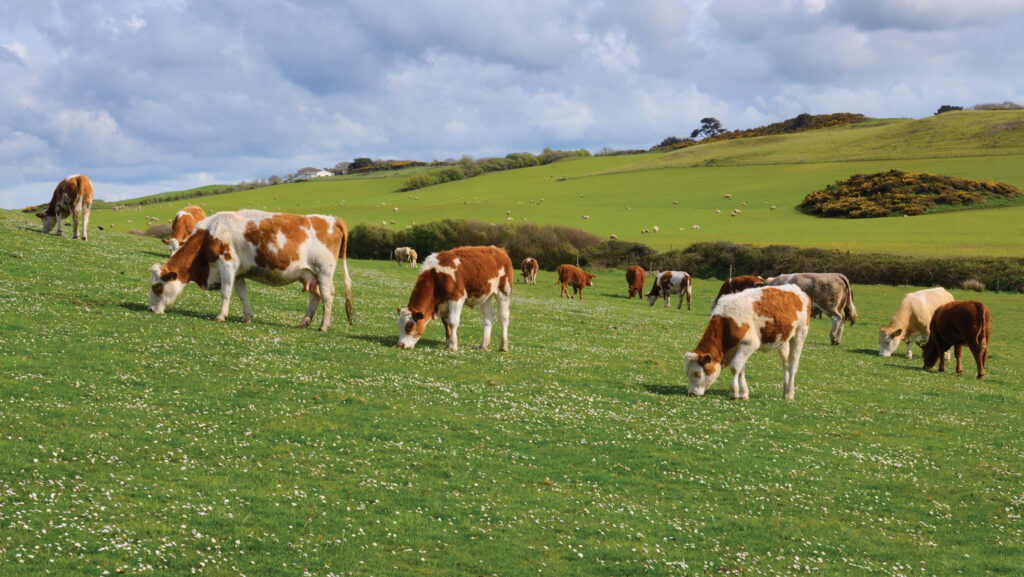Ruminants part of the solution to climate change, says Sustainable Food Trust
 © Craig Joiner Photography/Alamy Stock Photo
© Craig Joiner Photography/Alamy Stock Photo A new report has argued that ruminants fed on grass are better for the environment and can help combat climate change, compared to intensely farmed and grain-fed animals.
The Sustainable Food Trust (SFT) argues that while regenerative, grass-based systems can be lower-yielding, cattle and sheep raised on pasture deliver benefits for the environment, public health and animal welfare from the same area of land, compared to industrial livestock systems.
See also: Why scrapping net zero could help tackle climate change
“This report clearly demonstrates the need to differentiate between livestock that are part of the problem and those that are an essential part of the solution.
“In other words, it’s not the cow, it’s the how,” said Patrick Holden, chief executive of the SFT.
The debate over whether we should eat meat and dairy, he said, has become unnecessarily polarised.
The SFT believes that while livestock are often criticised for their greenhouse gas emissions, they can play a valuable role in healthier diets.
“People have been led to believe that all meat is bad, but what really matters is how the food has been produced – and whether that farming system supports or undermines the health of people and the planet,” Mr Holden added.
The report also argues that animals raised on pasture produce food with a superior nutritional profile compared to their grain-fed counterparts – a factor the trust says must be considered alongside yield.
Five-point plan
The SFT says a shift towards lower-input, pasture-based farming, and diets that feature smaller amounts of high-quality meat and dairy, are needed in future. It makes five recommendations:
- Government should set up a cross-government taskforce to drive the transition to regenerative food and farming systems.
- Businesses, including food companies and retailers, need to co-finance the agricultural transition.
- Defra must adopt a common on-farm measurement framework to assess the sustainability and social impacts of farming systems.
- All foods should have a sustainability label linked to the on-farm measurement framework.
- Food supply chains must be re-localised to support regenerative livestock production, with local abattoirs and regional processing facilities.
Industry response
The AHDB said it welcomed the report, which adds to the conversation around the role agriculture plays in mitigating against climate change.
“Ruminant livestock systems can deliver multi-functional land uses, including the storing and sequestration of carbon, habitat management, and improved soil health, resulting in the delivery of multiple public goods while also producing nutritious food,” said Rachael Madeley-Davies, AHDB head of environment.
However, she added, it was important not to single a system out.
“We have a mosaic of different systems in the UK and each provides unique benefits.
“We wouldn’t want to single out one system over another.
“What’s important is the management of those systems,” she added.
